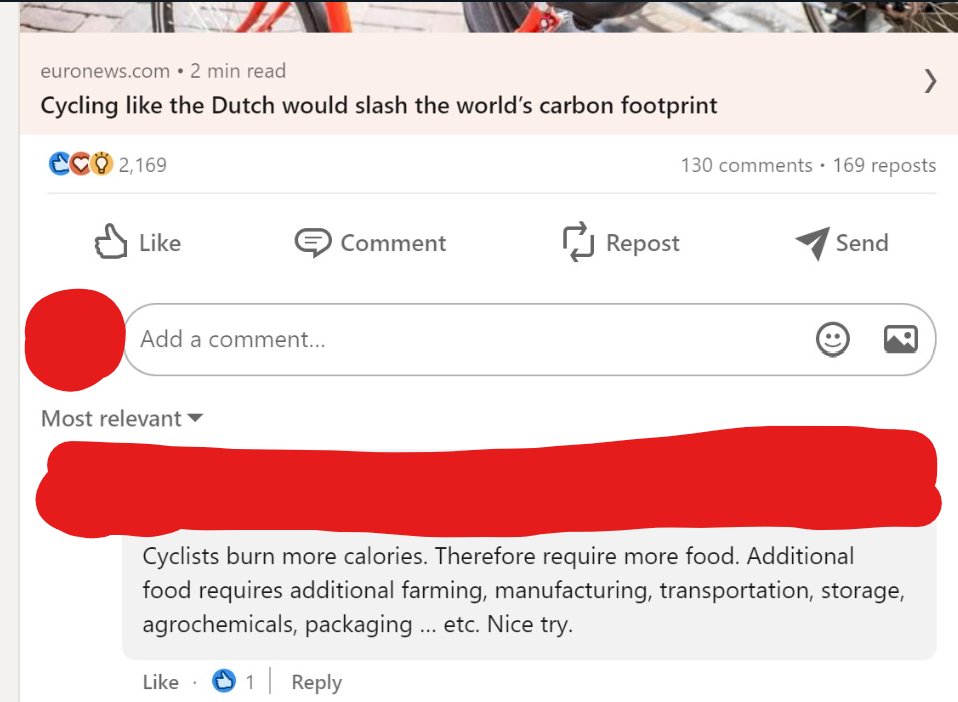Fuck Cars
A place to discuss problems of car centric infrastructure or how it hurts us all. Let's explore the bad world of Cars!
Rules
1. Be Civil
You may not agree on ideas, but please do not be needlessly rude or insulting to other people in this community.
2. No hate speech
Don't discriminate or disparage people on the basis of sex, gender, race, ethnicity, nationality, religion, or sexuality.
3. Don't harass people
Don't follow people you disagree with into multiple threads or into PMs to insult, disparage, or otherwise attack them. And certainly don't doxx any non-public figures.
4. Stay on topic
This community is about cars, their externalities in society, car-dependency, and solutions to these.
5. No reposts
Do not repost content that has already been posted in this community.
Moderator discretion will be used to judge reports with regard to the above rules.
Posting Guidelines
In the absence of a flair system on lemmy yet, let’s try to make it easier to scan through posts by type in here by using tags:
- [meta] for discussions/suggestions about this community itself
- [article] for news articles
- [blog] for any blog-style content
- [video] for video resources
- [academic] for academic studies and sources
- [discussion] for text post questions, rants, and/or discussions
- [meme] for memes
- [image] for any non-meme images
- [misc] for anything that doesn’t fall cleanly into any of the other categories
Recommended communities:
view the rest of the comments

Can you elaborate on the first bit? It's counter intuitive, considering electricity needs to be produced somehow, so I'd love to learn the background.
Usually using electricity in something like an electric car requires more emissions to generate the power than would be emitted from the food and respiration required to walk the same distance.
Bicycles are interesting because they improve efficiency so much that it offsets the emissions needed to make the bike, and e-bikes are able to leverage that high efficiency to get 80+ km of travel per KWh (compared to ~6 from something like a Tesla)
That is super interesting, thanks! Granted, public transport transports more than one person, so if possible, it's still much more efficient, and batteries are made of very finite resources, which is a whole different issue to consider.
True! A fully loaded train is about the most efficient way to move humans from one place to another, and has been for over a hundred years.
Lithium is limited, but you can make 150 e-bikes with a single electric car battery. If we could figure out some sort of solid state sodium battery chemistry it wouldn't even be an issue.